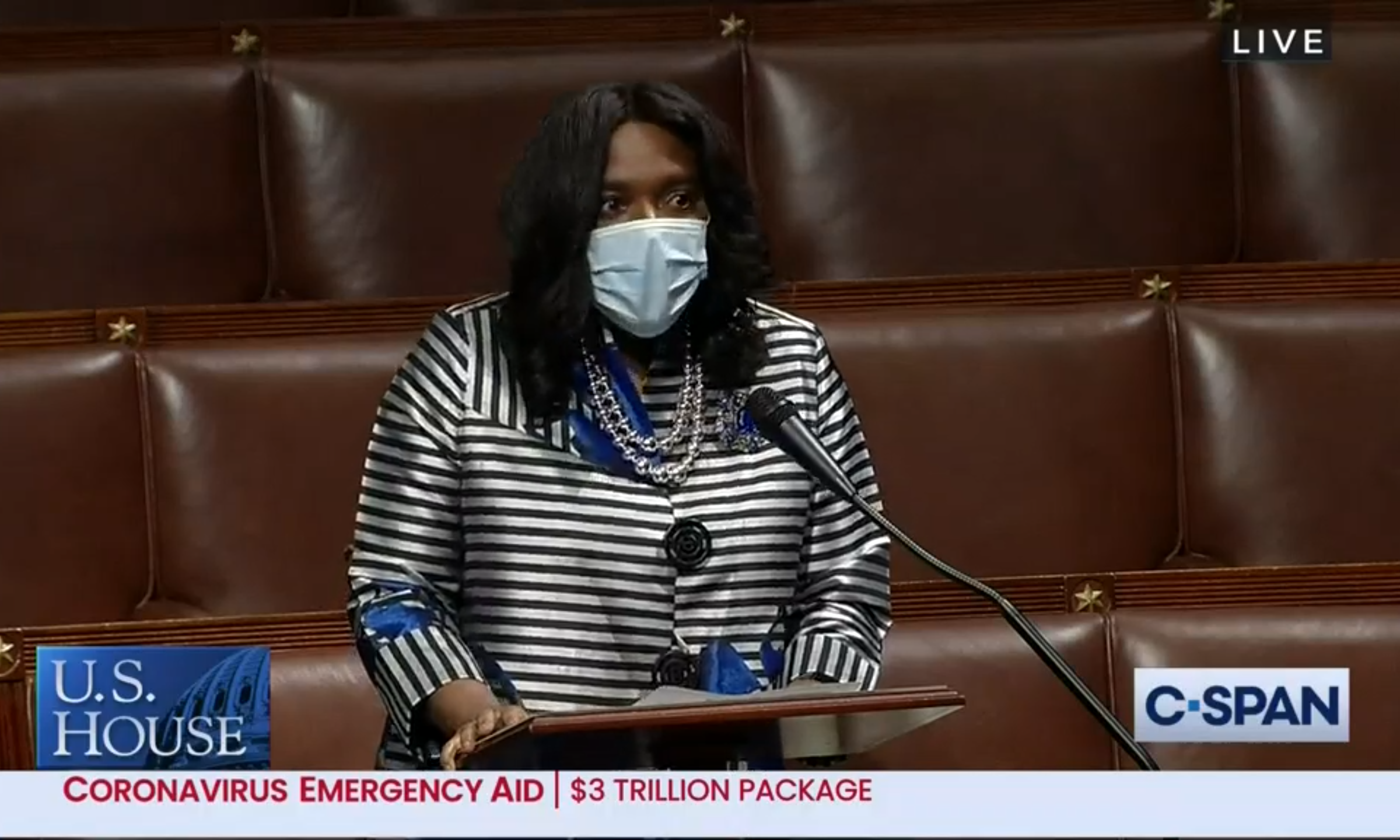Congresswoman Terri Sewell, D-Selma, on Friday voted in favor of the Heroes Act, the House Democrats’ latest legislation to address the continued COVID-19 public health crisis and provide support for struggling families and essential workers.
“The coronavirus is not waiting, so Congress must continue to show leadership and act now to provide relief to our communities, workers and families to weather this crisis,” Sewell said. “Not only would this legislation provide Alabama counties and municipalities with much-needed resources, it would also honor the service that our frontline workers by providing them with well-deserved hazard pay, to give them the support they need and deserve to continue to keep our communities fed, safe and healthy during this pandemic.”
“The bill also provides families with a second round of direct payments up to $6,000 per household and extends weekly $600 federal unemployment payments through next January,” Sewell continued. “These are critically important measures that will provide security and additional support for Alabamians impacted by this pandemic.”
The Heroes Act provides Alabama and local communities on the frontlines of this crisis with robust funding to cover coronavirus-related outlays and revenue loss and pay our health care workers, police, fire, transportation, EMS, teachers and other vital workers who keep us safe and are in danger of losing their jobs.
An analysis prepared by the Congressional Research Service estimates that the Heroes Act will provide an estimated $1.6 billion in federal funding for the 7th Congressional District alone.
The Heroes Act includes a $90 billion fund to support state and local public education, including $1,469,335 for Alabama communities.
This funding will help maintain or restore state and local fiscal support for elementary, secondary and public higher education and can be used to meet a wide range of urgent needs, including summer learning, afterschool programs, distance learning, and emergency financial aid for college students as well as coordination with public health departments to mitigate the spread of disease.
The bill also provides establishes a $200 billion Heroes’ fund to ensure that essential workers across the country receive hazard pay and commits another $75 billion for the testing, tracing and treatment to have a path to safely reopen the economy while helping ensure that every American can access free coronavirus treatment.
The bill provides a second round of direct payments to families up to $6,000 per household, provides new employee retention measures to keep 60 million workers connected with their jobs and extends weekly $600 federal unemployment payments through next January.
The bill also supports small businesses by strengthening the Payroll Protection Program to ensure that it reaches underserved communities, nonprofits of all sizes and types and responds flexibly to small businesses by providing $10 billion for COVID-19 emergency grants through the Economic Injury Disaster Loan program. The bill provides health security with COBRA subsidies and a special enrollment period in the ACA exchanges for those without insurance. It would require that OSHA ensure that all workplaces develop science-based infection control plans and preventing employers from retaliating against workers who report problems. It provides housing security with $175 billion in new supports to assist renters and homeowners make monthly rent, mortgage and utility payments and other housing-related costs. The bill increases the maximum SNAP benefit 15 percent and provides additional funding for nutrition programs that help families put food on the table. The Democrats also provide new resources to ensure safe elections, an accurate Census, and bail out the long troubled Postal Service.
Critics oppose the bill because it adds $3 trillion to the national debt. The previous coronavirus aid bills have already added $3 trillion to the debt which has already soared to $25,268 billion – 118.5 percent of GDP. The aggregate, $6 trillion, is more than $18,000 for every person in the United States. That is more than $72,000 for a family of four. The Democrats also includes a number of initiatives in the bill that Republicans oppose.
Congresswoman Sewell spoke on the House floor to urge her colleagues to support the bill.
The bill is likely dead on arrival in the Republican-controlled U.S. Senate, but passage by the House puts pressure on the Senate to offer their own aid package.
In February America was experiencing its strongest economy since 1969 with rising wages, a growing workforce, and soaring stock market. Then the coronavirus, SARS-CoV-2, struck. One American died in February, 94 died in the first 16 days of March. 5,056 died in the second 15 days of March. 27,562 died in the first 15 days of April. 31,143 died in the second 15 days of April, and 24,651 died in the first 15 days of May.
On Saturday afternoon, the American death toll from the global pandemic had risen to 89,595. The April unemployment was 14.7 percent and the actual jobless rate is estimated at 24 percent: both numbers not seen since the Great Depression of the 1930s.
Congresswoman Terri Sewell has represented Alabama’s Seventh Congressional District for over 9 years and is poised to win a sixth term, since she has no GOP opponent in November.





















































